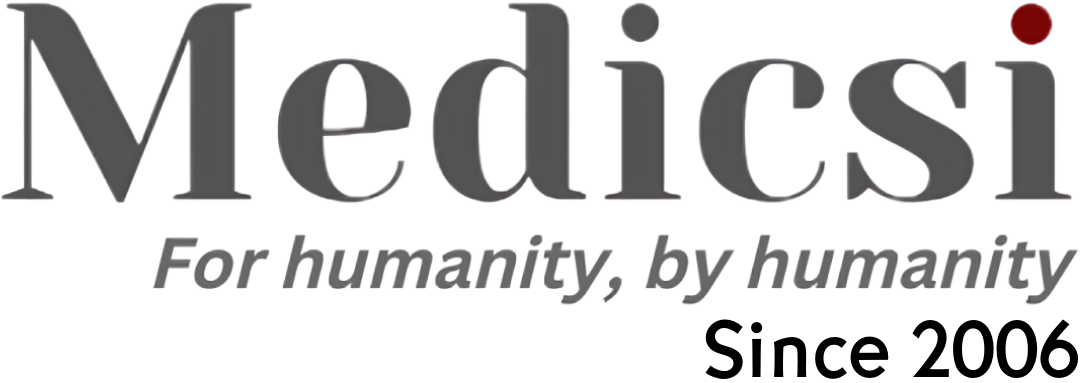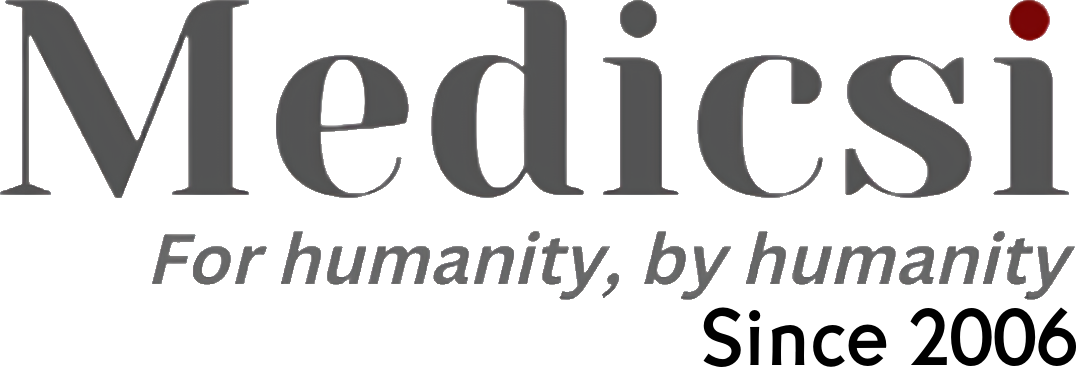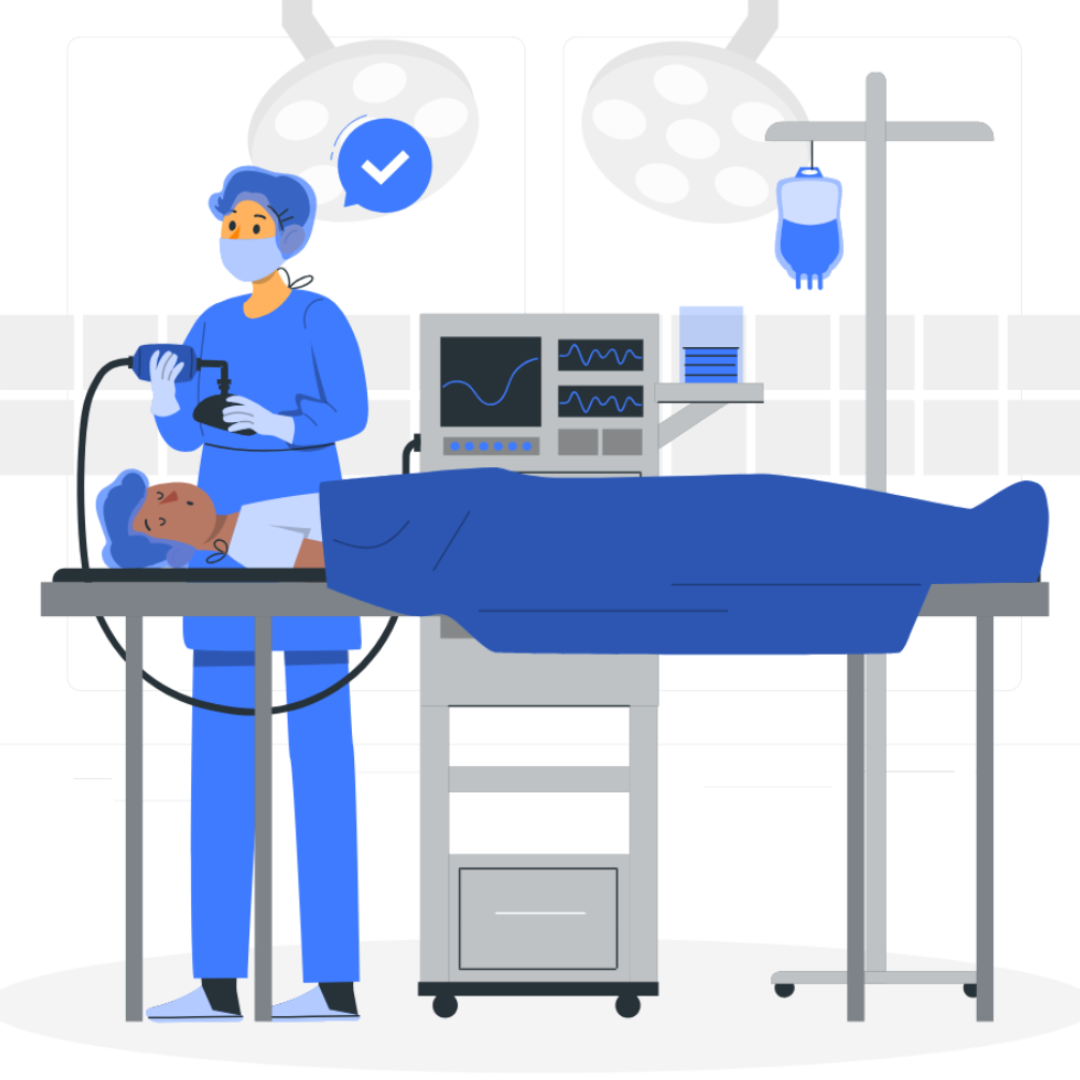Patient Information Blogs

Managing Weight Gain
(Commonly Expressed as OBESITY)
23/04/2024
Managing Weight Gain
(Commonly Expressed as OBESITY)
23/04/2024
Obesity is a highly prevalent chronic disease characterised by excessive fat accumulation that presents risk to health. For adults, WHO defines overweight and obesity as follows:
Overweight is a BMI greater than or equal to 25; and
Obesity is a BMI greater than or equal to 30.
Body mass index (BMI) is widely used as a simple and reliable way of finding out whether a person is a healthy weight for their height. For most adults, having a BMI of 18.5 to 24.9 is considered to be a healthy weight. A BMI of 25 to 29.9 is considered to be overweight, and a BMI over 30 is considered to be obese.

According to BMI, general population is classified in five categories:
Underweight (BMI < 18.5 kg/m2),
Normal weight (BMI 18.5-24.9 kg/m2),
Class I obesity – overweight (BMI 25.0-29.9 kg/m2),
Class II obesity – obesity (BMI 30.0-39.9 kg/m2),
Class III obesity – extreme obesity (BMI > 40 kg/m2).
The American Medical Association (AMA) designated obesity a disease in 2013. As a result, the idea that obesity is caused by insufficient willpower, lack of discipline, and bad choices began to transform. The headline, “AMA Recognizes Obesity as a Disease” was catapulted across both academic and mainstream media.
The best way to treat obesity is to eat a healthy, reduced-calorie diet and exercise regularly. To do this you should: eat a balanced, calorie-controlled diet as recommended by your doctor or weight loss management health professional (such as a dietitian).
Not always though, diet control is enough to lose weight to the desirable levels and other modalities of management needs to be adhered to like physical fitness with a professional, behavioural therapy to understand the eating habits and change of lifestyle and if all fails you need surgical hands to manage the deposited fat and your foodpipes to ask for less.
You may suffer from the following and end up in the years to come with chronic ill health which can have its roots in nothing else but excessive unneeded fat on you.
Symptoms of Obesity:
- Difficulty sleeping, sleep apnoea, daytime drowsiness.
- Back and/or joint pains.
- Excessive sweating.
- Intolerance to heat.
- Infections in skin folds.
- Fatigue.
- Depression.
- Feeling of shortness of breath (dyspnoea).
Diseases associated with Obesity:
- Heart disease
- Diabetes
- Arthritis
- Fertility issues
- Gallbladder stones
- Certain Cancers
Medicsi at Bahria is offering comprehensive treatment for Obesity as below:
- Diet control & Lifestyle modification. Make an appointment with the dietician)
- Medical & Behavioral Therapy. (Treatment of Obesity with Medicine) See the Physician at Medicsi.
- Weight Loss procedures for Obesity. See the surgeon and have all the information needed. Surgeons may discuss with you one of the following but not limited to them.
– Sleeve Gastrectomy
– Gastric Bypass
– Mini Gastric Bypass
– Liposuction
The solution to Obesity demands a holistic approach and a strategic vision of what can be achieved by understanding your body physiology and choosing the best treatment modality to lose weight.
Obesity is a highly prevalent chronic disease characterised by excessive fat accumulation that presents risk to health. For adults, WHO defines overweight and obesity as follows:
Overweight is a BMI greater than or equal to 25; and
Obesity is a BMI greater than or equal to 30.
Body mass index (BMI) is widely used as a simple and reliable way of finding out whether a person is a healthy weight for their height. For most adults, having a BMI of 18.5 to 24.9 is considered to be a healthy weight. A BMI of 25 to 29.9 is considered to be overweight, and a BMI over 30 is considered to be obese.
According to BMI, general population is classified in five categories:
Underweight (BMI < 18.5 kg/m2),
Normal weight (BMI 18.5-24.9 kg/m2),
Class I obesity – overweight (BMI 25.0-29.9 kg/m2),
Class II obesity – obesity (BMI 30.0-39.9 kg/m2),
Class III obesity – extreme obesity (BMI > 40 kg/m2).
The American Medical Association (AMA) designated obesity a disease in 2013. As a result, the idea that obesity is caused by insufficient willpower, lack of discipline, and bad choices began to transform. The headline, “AMA Recognizes Obesity as a Disease” was catapulted across both academic and mainstream media.
The best way to treat obesity is to eat a healthy, reduced-calorie diet and exercise regularly. To do this you should: eat a balanced, calorie-controlled diet as recommended by your doctor or weight loss management health professional (such as a dietitian).
Not always though, diet control is enough to lose weight to the desirable levels and other modalities of management needs to be adhered to like physical fitness with a professional, behavioural therapy to understand the eating habits and change of lifestyle and if all fails you need surgical hands to manage the deposited fat and your foodpipes to ask for less.
You may suffer from the following and end up in the years to come with chronic ill health which can have its roots in nothing else but excessive unneeded fat on you.
Symptoms of Obesity:
- Difficulty sleeping, sleep apnoea, daytime drowsiness.
- Back and/or joint pains.
- Excessive sweating.
- Intolerance to heat.
- Infections in skin folds.
- Fatigue.
- Depression.
- Feeling of shortness of breath (dyspnoea).
Diseases associated with Obesity:
- Heart disease
- Diabetes
- Arthritis
- Fertility issues
- Gallbladder stones
- Certain Cancers
Medicsi at Bahria is offering comprehensive treatment for Obesity as below:
- Diet control & Lifestyle modification. Make an appointment with the dietician)
- Medical & Behavioral Therapy. (Treatment of Obesity with Medicine) See the Physician at Medicsi.
- Weight Loss procedures for Obesity. See the surgeon and have all the information needed. Surgeons may discuss with you one of the following but not limited to them.
– Sleeve Gastrectomy
– Gastric Bypass
– Mini Gastric Bypass
– Liposuction
The solution to Obesity demands a holistic approach and a strategic vision of what can be achieved by understanding your body physiology and choosing the best treatment modality to lose weight.
For Surgical Intervention In Obesity:
Dr. Ahmad Raza (Visit Profile)
razaahmad63@yahoo.com
+92 333 5118363





